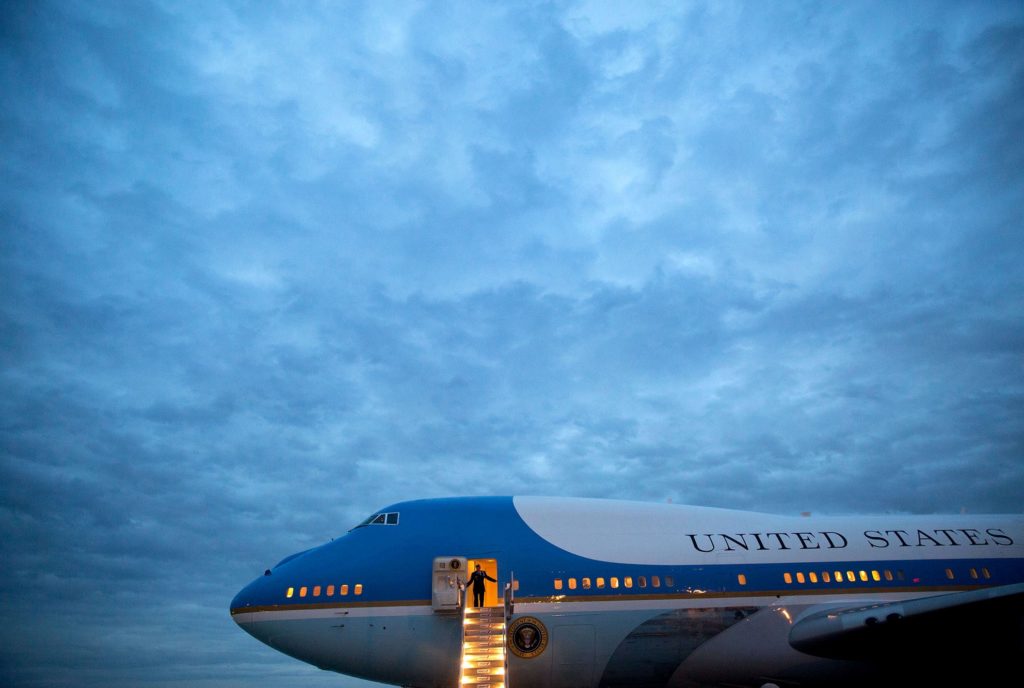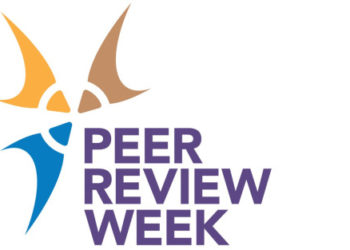The last few months have been notable for many things, including the outgoing US President writing a string of articles published in medical and scientific journals.
Since last summer, President Obama has published three articles in medical or scientific journals, and in publications at or near the top of the journals food chain — the first in JAMA this past August, another in NEJM earlier this month, and most recently one in Science. (Full disclosure: I was on the AMA Journal Oversight Committee when the JAMA article was submitted and published, but I had no involvement in the decision to publish, as my role was to serve on the Committee dedicated to ensuring the editor’s independence.)
For scholarly journals, President Obama is a kindred spirit — educated at Harvard, former president of the Harvard Law Review, an author of bestselling autobiographies, and a former faculty member at the University of Chicago Law School. He has academic and editorial credibility that most presidents don’t possess. In fact, in addition to the other journal articles listed above, you can add a January 5, 2017, article in the Harvard Law Review.
Given the pace and prominence of the articles he’s produced and had published, one could reasonably infer that if the President knocks, top journals are readily willing to answer. Has President Obama identified journals as a new path to political publication? Or are these articles anomalies?

Politicians have published in journals before. Henry Waxman, the former Congressman from California, wrote a number of articles in journals, including at least two in NEJM — one about medical malpractice, another about the Vioxx recall. These publications seem to suit both the editors and the politicians — that is, they allow the politician to make a political point beneath a prestigious proscenium, while the journal gains notoriety and perhaps scores some political points of its own.
But there are more basic issues around such publications. Returning to the most recent Obama articles, we have the issues of authorship and disclosure.
Will we see an article in a high-profile scholarly journal from Donald J. Trump? Will the disclosure and attribution process be handled differently?
Coming at such a rate and from a bureaucracy, President Obama’s publications naturally raise issues of authorship. While President Obama is listed as the sole author on each paper, is he truly the only author? Is attribution complete? With journals generally embracing more fulsome and inclusive author and collaborator lists, it seems out of step to remove likely authors. As outlined in JAMA’s instructions for authors, if an individual doesn’t meet all four criteria of authorship (design, drafting, approval, accountability), they should be listed in acknowledgements if they contributed in some way. This is a standard way of thinking about authorship attribution, yet President Obama is the only author listed or acknowledged. There are certainly many other factors around the author attribution decision — security, privacy, and other factors play a role. Solo authorship may also be a form of protection in these unusual cases.
Disclosure is another issue that merits some attention, especially going forward. In President Obama’s case, the JAMA article relied on a pre-existing, eight-page government disclosure form (with one addendum for book royalties) rather than requiring the President to fill out the journal’s form, while NEJM required the President to follow the normal disclosure process, which itself saw the same government disclosure form attached.
The articles have generated only a touch of controversy. An editorial in the LA Times in response to the first JAMA publication noted:
It would be difficult, if not impossible, to find another paper in any scientific journal in which a politician was allowed to subjectively analyze his own policy and declare it a success. This is a textbook definition of conflict of interest.
This criticism seems to hang too much on the idea that scientific and medical journals are sacrosanct, especially in their opinion pages. It’s often in everyone’s interest to give an advocate room to speak, as the risk cuts both ways — maybe they gain adherents and convince people, or perhaps they sow resistance and turn readers off. But in this case, the charge of “conflict of interest” is puzzling — when an elected leader is reflecting on legislation passed by the Congress and signed by the President on behalf of the American people, where is the conflict of interest? It sounds more like a confluence of interests.
The question of whether accommodations were made to facilitate the publication of a powerful person’s article is also discussed in the LA Times piece, and in strong terms:
JAMA held the president to a different, lower standard than it would an academic scientist. In fact, JAMA editor-in-chief Howard Bauchner admitted as much. In an interview with the Chronicle of Higher Education, he said that Obama’s article was peer reviewed, but that he was allowed “a bit more flexibility because of who he is.” He also acknowledged that “we don’t fact-check every fact.”
Editors are not immune to the political or social macrocosm — nor should they be, I’d assert. Given a chance to have an article from a famous and credible individual, one which will resonate with their audience and beyond, the decision to proceed ticks a number of editorial and publishing boxes. After all, engaging an audience and cultivating a powerful voice are editorial and publishing imperatives. If a famous author shows up and makes reasonable requests in a context that promises greater audience engagement and a chance to demonstrate the power of the publishing vehicle, pushing them away runs counter to many editorial and publishing muscles, especially if the integrity of the work is never at risk. It is more natural to embrace than repel, especially when the article is an opinion piece. Moreoever, despite the insinuation of the LA Times opinion piece, Bauchner is not being disingenuous about peer review, which is a customized practice in nearly every case — a jury of your peers never consists of the same peers, never deliberates the same case, never gets the same instructions to the jury. The same goes for peer review, generally. Case by case is the mode of peer review. When you have an opinion piece, the review process has to be quite different compared to that for a randomized controlled trial or research in general. And let’s not forget the role of editors and the in-house editorial team, which ultimately has the accountability for the decision to publish. Peer review is advisory to editorial review. We too often overlook that fact.
The upshot was overall a positive for JAMA and the other journals — a good experience for author and journal alike. But scholars themselves seem a touch incredulous about the President’s scholarly publications, noting that fame and prominence have paved a path that they find steep and rocky, represented in the tweet below:
Obama has an impressive publication record: @NEJM, @JAMA_current & @ScienceMagazine. Too bad he can't get tenure… https://t.co/MxMLL7KxIl
— Laura Helmuth (@laurahelmuth) January 9, 2017
Over the years, President Obama has accumulated a stellar publication record. Since 2006, when his publication records starts in PubMed, he has published four articles in NEJM, two articles in JAMA, one article in Nature, one article in Science, and three other articles in lesser-known journals. That’s 11 articles in a dozen years.
Given that these articles are really opinion pieces and not scientific or scholarly research, the issue of political sympathies naturally arises. It’s a complicated issue in these settings. The politics of the Affordable Care Act (ACA) can be portrayed through lenses such as social compact, public health, physician self-interest, political legacy, or economic benefits, to name a few. The ACA and climate change have both had an uphill battle in the political arena. Scientists and physicians are generally more educated and likely to be more progressive in their social policies as a group. So, clearly, while the position of the person writing the article may have been part of the calculus leading to publication, the political alignment of views probably also played a role. Scientists want to advance awareness of climate change. Physicians want more people insured and healthy. Just because political views align doesn’t mean the motivations are not commendable, but this is worth noting given the cycles of politics.
There is certainly more to it. The “glamour” journals know how to cultivate the spotlight, and press releases and press coverage were part and parcel of the Obama publication events. The JAMA publication stole the show in 2016 for Altmetrics views, with an overall score of 8,063. The second place article, about medical errors and published in the BMJ, garnered a composite score of 4,912, about 40% lower. Interestingly, the second place article generated nearly double the number of news stories, while the Obama/JAMA article generated nearly 4x the number of tweets. Other measures were very similar, suggesting that style (Twitter) might beat substance (news stories) in the way Altmetrics tallies. (Note: The Science article already has an Altmetrics score of 7,150, suggesting it may eclipse the JAMA article’s score. Again, the high score is mostly based on tweets.)
The question in front of us, now that a politician with many diametrically opposed views relative to science and healthcare has been elected President, is: Has President Obama, by using journals as an outlet in an unprecedented way, paved a path the journals may find difficult to block?
Will we see an article in a high-profile scholarly journal from Donald J. Trump?
If we do, will the disclosure and attribution process be handled differently? After all, the incoming President’s financial interests are the most opaque in memory, and he has resisted calls to release his taxes or divulge his financial interests. How will even the standard Executive Office public disclosure form look for President Trump? Would journal editors give this President “a bit more flexibility because of who he is”? Will there be a true conflict of interest that the journals cannot allow? Would refusal to publish a work by the new president be followed by reprisals and vendettas? Or would alternative journals serve this new president more ably, just as alternative media outlets have served him to this point? How will the community react to a potential challenge to its pecking order?
This last possibility may not be as far-fetched as you might think. President-elect Trump’s pick to lead the Department of Health and Human Services (HHS) is a member of the Association of American Physicians and Surgeons, a group that has stated in the past that Medicaid and Medicare are “evil” and “immoral.” Their journal asserts it is in the DOAJ, yet I couldn’t find any indication it survived DOAJ’s recent reset. The journal has no stated editor, publishes only in PDFs, and has articles arguing against evidence-based medicine and vaccination. Yet, its existence provides a hint about some of the options the incoming administration may have if it decides to pursue publication under the guise of academic seriousness.
The future remains to be discovered, but the appropriateness of politicians publishing in scientific journals is debatable, the benefits uncertain. Politics affects many aspects of science, but is science served in the long term by allowing politicians into its journals?
Discussion
10 Thoughts on "Journals and Politicians — A Marriage for Mutual Benefit? Or a Temporary Alignment of Interests?"
I adore the new look of “The Scholarly Kitchen.” Great job!!
Judging from sci. pub. community’s general reaction to Trump’s election, it’s highly doubtful anyone would be willing to accept and publish his paper even if it were a genuine research breakthrough. At this point of his presidency it’d likely be a PR suicide for his publisher.
As I mention toward the end, however, journals with atypically political positions in the world, and positions counter to the social and scientific mainstream, do exist, and may serve as willing outlets for political tracts posing as thoughtful editorials. That could turn the journal world on its head, just as outlets for political viewpoints dressed as news (FOX, Breitbart, MSNBC) have become the norm elsewhere. Are we going to be politicized?
I don’t know about the situation in the US, but speaking as an outsider/foreigner, I could not find any fault with the recent publications by President Obama. The JAMA article is a Special Communication, the NEJM one is billed as a Perspective, and the one in Science is in the Policy Forum. Those are, strictly speaking, not outlets for scientific discovery, and I would think that most doctors or scientists would have no problem differentiating those from true scientific articles.
On the other hand, after reading through them, I actually found them fascinating. There are many interesting parallels between the healthcare system as envisioned by President Obama and our National Health Insurance program (of Taiwan). Interesting comparisons can also be made between Obamacare and the UK NHS and the Canadian province-based approach. As such, those articles are of interest to those involved in public health research, especially in the field of public health policy (which although political in nature, requires a thorough understanding of the medical practice).
Personally I think that scientific journals should not only carry articles of scientific interest, but also disseminate information about scientific policies and other political matters that may affect the scientific endeavor. There are many people from the ivory tower that don’t read the news but do read Science/Nature/JAMA/NEJM/Lancet. Of course, it would be even better if they also published a counter-perspective in the same issue (Trump?).
Let’s not pretend publishers presently exist outside of the political realm, merely standing on the sidelines as impartial observers of political intrigue. They’re already active agents shaping policy in many ways, and if anything, publishing politicians’ advertorials would at least overtly disclose their political leanings to the public.
It’d be refreshingly honest and transparent, actually.
If a journal publishes policy related commentaries then a policymaker’s views are certainly appropriate. Calling a policymaker a politician does not change that. But if the journal does not want to take a policy position then at least the leading opposing view should also be presented.
As for attribution, anything policy related that is written by a sitting President almost certainly gets heavily reviewed and edited, if not actually written. But the standards of scientific attribution do not apply.
If a person is in a position to set policy (as opposed to merely advocating), then that person’s views on policy are primary data and typically meet a journal’s criteria for publication. There remains an important role for reviewers: challenging “alternative facts” and insisting that views are clearly stated.
Are not you opening a “Pandora’s Box” to allow a non-expert to publish in these magazines. Look, you are already discussing the negatives about letting a “Trump” submit an article. My opinion is that you will diminish the credibility of the magazine. Science is suppose to be about “pure facts”, not someone’s “opinion”. Why don’t you create a new section labeled “editorial” or “opinions”? I do not care “how smart” any politician is thought to be. The Pope (the sage/politician at that period of history) thought he knew all about the heavens over “some guy who had a telescope”.
Not sure what the scholarlykitchen overall goals are as a blog so not sure if this critique hits the mark given the blogs goals. But at a never reader, here are my thoughts as a scientist. I find this article poorly covers the concept being debated. It would seem there is more balanced discussion in the comments than the article itself. This article appears to be an effort to push the view that it is justified and ok to have famous powerful people, and people in some ways who control your budget (through grants) to publish in scientific journals espousing political views. The counter arguments really aren’t presented beyond the LA Times quotes and little effort was made in this regard, hence the poorly written article if the ultimate goal was to explore this idea. Also it seems quite evident that your personal politics align with Obama given overly flattering commentary when talking of the president. Your political commentary on Trump’s tax returns etc. have little to do with this topic are are used solely to advance your political views. So that part of the article is just plain bad. If your blogs purpose is to advance liberal political views then the article as written is fine as far as political commentary. That said, what do I think about the President writing articles in scientific journals? If the journals already have opinion sections then I have no issue with this provided that it is not overdone. An article a month from the President would be way overboard and inappropriate for a scientific journal. I also think articles from politicians with opposing opinions should be published as well, perhaps even side by side if your true goal is exploring these topics. The impression I get from the end of your article is that you would probably oppose articles that would not align with your political views, and that is a problem. Now if a journal contains nothing but scientific reports makes a special exception to publish opinions when they do not typically do so, I would be opposed to this. I don’t think this is the case in the instances you sited. Scientists are supposed to be objective, but I am seeing increasing politacalization creeping into the field and this is contrary to our objective goals and can damage public support for science as a whole. I think we may suffer from this in the future as this seems a recent phenomena. With this last point in mind, it probably would be a good idea to keep opinion sections to commentary from scientists and leaving politicians out of it. We are already seeing scientists themselves questioning the ability of social sciences to perform their function objectively given their apparent homogeneity in political views. Some argue that this is part (but not all) of the reproducibility problems that exist in this field. So in the end I wouldn’t object to balanced opinions from politicians in select circumstances in pre-existing opinion sections. If your goal is to subtly manipulate the situation to advance your apparent political views then this, in the long term, will be damaging to scientific researchers of all stripes. Given our political processes and its effects on the financial support provided by government, I would suggest treading very cautiously trying to do this.



